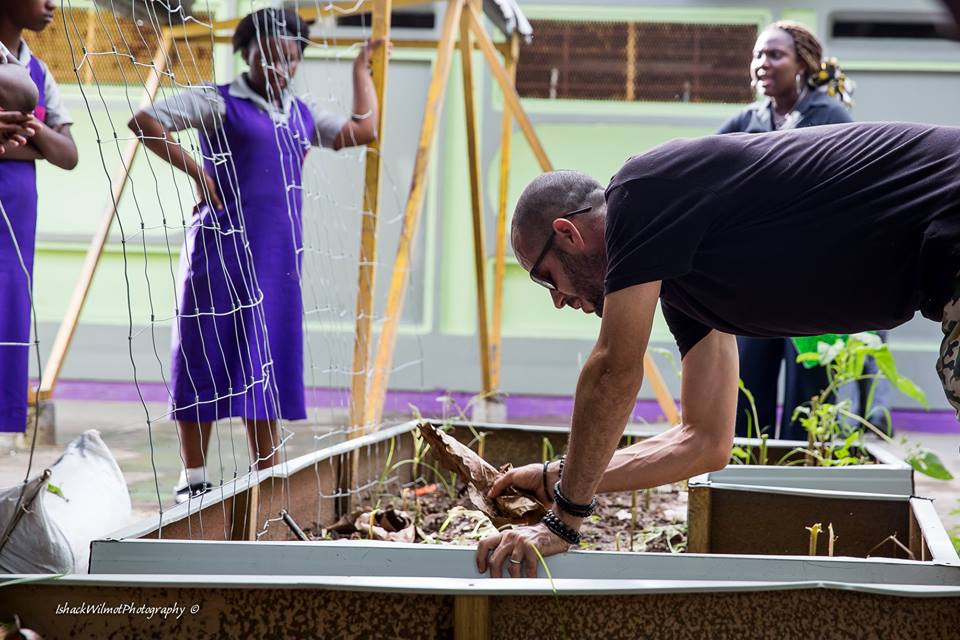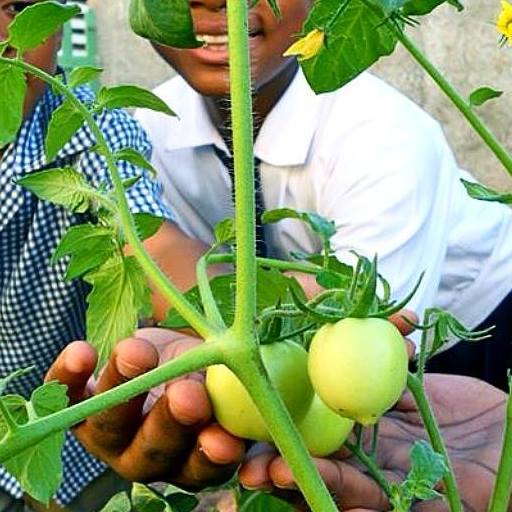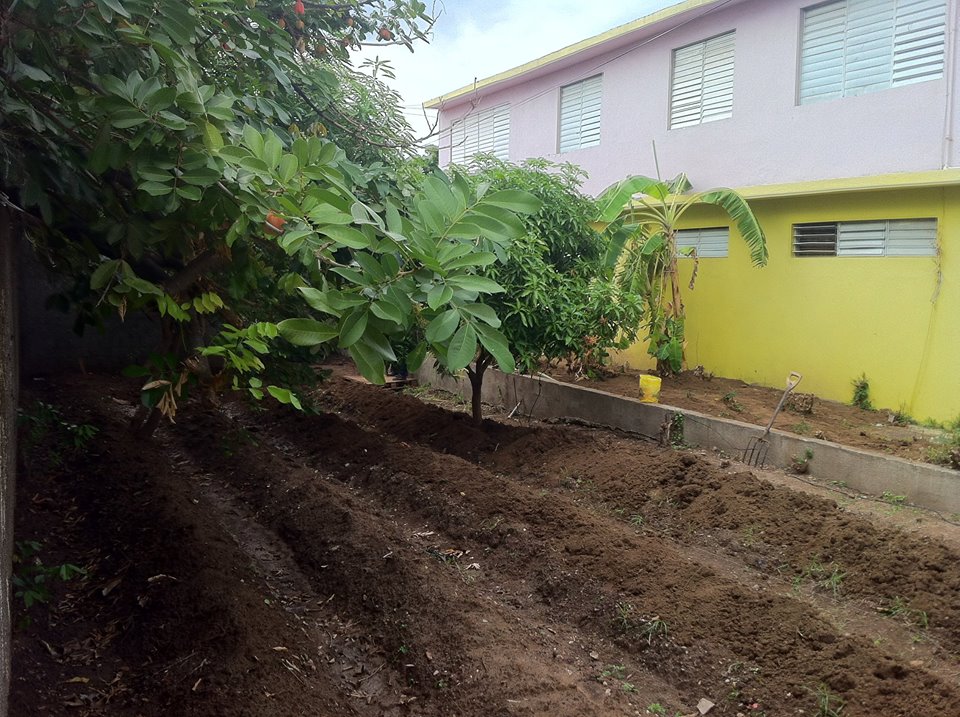Eco Spotlight: Plant Jamaica
by Stephanie Koathes Nov 12, 2018

For four years, the social enterprise Plant Jamaica has been working to enrich lives by implementing and educating people about sustainable agriculture practices.
Plant Jamaica creates eco-friendly and beautiful edible landscapes for urban spaces as well as provides education to schools and communities. Andrew Bruce, founder of Plant Jamaica, shares with us a little more about his group’s aims, what they do and how they came to be.
What does Plant Jamaica do?
Plant Jamaica is a social enterprise that creates awe-inspiring edible and multifunctional landscapes for most urban environments. The social side crowdfunds, applies for grants, and shares profits from the enterprise arm to support education outreach programmes. This education incorporates social and environmental solutions for climate adaptation. The enterprise arm offers designs, installation, supplies, and consultations to property owners. We create edible landscapes that are functional and visually appealing. If they can’t dream it, we will dream it for them. The point is to make sustainability cool in practical ways that inspire others to follow suit.

Photo credit: Facebook Plant Jamaica.
What’s the philosophy behind Plant Jamaica?
Plant Jamaica’s vision is for the nation and world to make use of sustainable practices which benefit the environment while alleviating poverty.
Our philosophy is to work with nature and not against it. Therefore, as individuals we should use practices that are good for humankind and the planet now and in the future.
When did Plant Jamaica get started?
Plant Jamaica began 2014 with two small crowdfunded projects in the community of Parade Gardens in Downtown Kingston. It didn’t begin as a business opportunity, but rather came from the need to help a community I had been doing some volunteer work with. My initial plan was to simply help others for a while and then go back to my everyday life. This small community was part of the spark that eventually became Plant Jamaica. In summer 2015, Plant Jamaica was officially registered as a charity in Jamaica.
What inspired it?
In 2014, I discovered a volunteer project on Fleet Street organized by a group of talented artists. These artists called their movement Paint Jamaica, and were creating interesting murals in the community. The idea interested me and I went down there to see the work. While there, in a spur of the moment decision, I decided to attempt my own amateur mural. During the months that followed, I had the opportunity to get to know several members of the community and the closer I got to finishing my mural, the more I wanted to do more in the community. More eventually became enhancing a small community farm across from the mural, largely through a crowdfunded project. Following this was creating a school farm at a primary school in that same community. From there I got additional training to allow me to teach not just farming principles, but sustainable farming principles. I’ve been combining education, the environment, and agriculture ever since.

Photo credit: Facebook Plant Jamaica.
What has the support been like for Plant Jamaica?
Support has been incredible to date. We’ve had some phenomenal volunteers, committed home gardeners and general support and encouragement locally and internationally. Financial support came from crowdfunding, grants, and the private sector. Our partners bought into the vision almost immediately and have been instrumental in helping us build technical capacity.
Are there any recurring activities hosted by Plant Jamaica that people can look out for?
Absolutely! 2017 was filled with several projects in schools, communities and, home gardens. We hosted educational forums on climate change, the environment and permaculture. Free education via the web will be coming online in 2018; ability to buy supplies for your organic gardens has begun. A social project to help the Hailie Selassie School in Payne Land, in collaboration with the We Will Rise group, will also be something to look out for. Our social media pages will give more details on specific projects as they come on stream.

Photo credit: Facebook Plant Jamaica.
How can people get involved?
Our social media platforms are current and people should pay attention to Instagram and Facebook for updates on volunteer opportunities, available supplies, ideas and so much more.
To find out more about Plant Jamaica or to connect with them, visit their Facebook page or check them out on Instagram (@plantjamaica).








